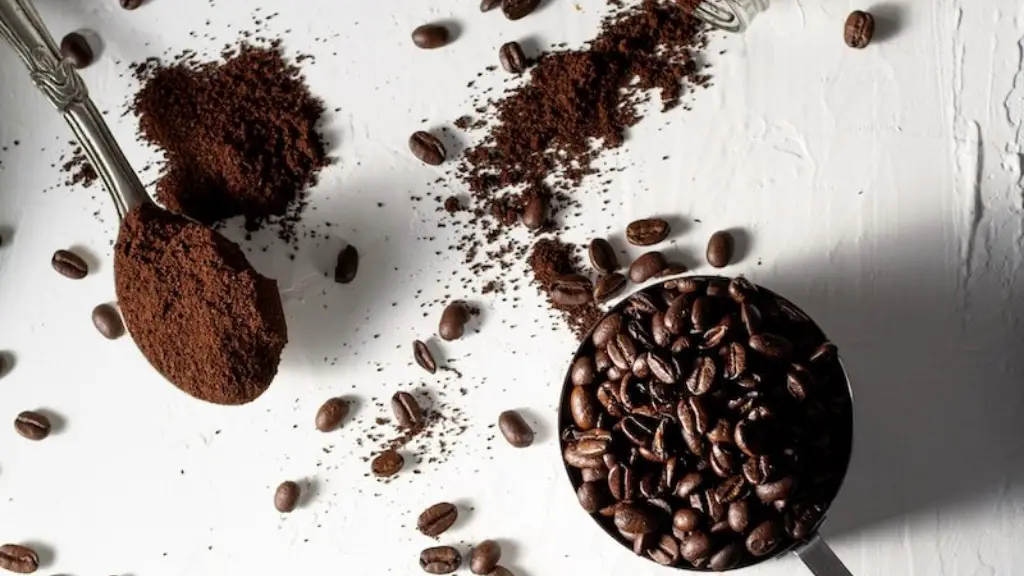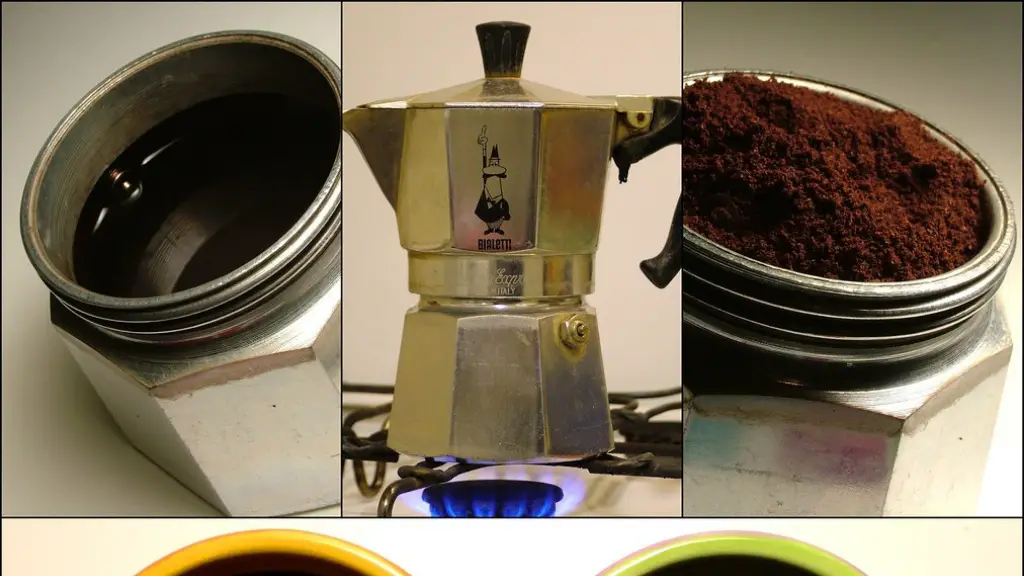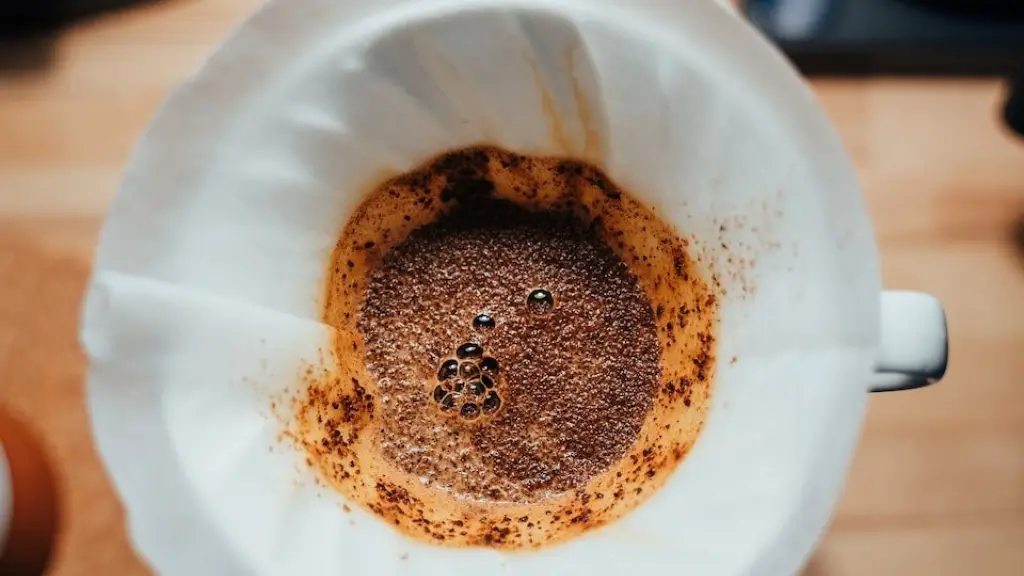Introduction
The idea that drinking coffee can help you sober up is widely debated and has been accepted by some as a natural way to restore alertness and cognitive functioning. Despite popular opinion, however, the effects of stimulating drinks like coffee have not been scientifically proven to sober up an individual. It is important to understand the science behind the debate in order to make an informed decision on whether or not it is advisable to drink coffee as a way to ‘sober up.’
Background Information
In order to understand the effect of caffeine on the body, it is important to know how alcohol affects the body. The chemical compound ethyl alcohol, commonly referred to as alcohol, is the active component of alcoholic beverages. When alcohol is consumed, it is absorbed into the bloodstream, leading to the suppression of certain parts of the brain responsible for decision-making, memory formation, and coordination. This is why excessive consumption of alcohol can lead to impaired judgement, slurred speech, and loss of motor control.
Relevant Data and Perspectives from Experts
A scientific study conducted by the National Institute on Drug Abuse (NIDA) found that caffeine does not actually reduce the effects of alcohol but may just mask them. Research into the subject revealed that once the effects of the ingested caffeine had worn off, the alcohol-related impairment remained. It is possible that caffeine may offer a short-term alertness, but overall it can have a detrimental effect as it encourages someone to underestimate the severity of the alcohol they have consumed.
Richard Saitz, a professor of Community Health Sciences and Medicine at the Boston University School of Public Health provided his expert opinion on caffeine’s effect on the body. Saitz explains that caffeine is a stimulant and it tends to counter the alertness-diminishing effects associated with excessive drinking. He also goes on to warn that caffeine does not actually replace any of the alcohol in the body and thus, the levels of intoxication remain the same.
Own Insights and Analysis
It is clear from the research that drinking coffee will not sober up an individual and may actually pose a greater risk for the drinker to embrace the false sense of sobriety the caffeine offers. Therefore, it is advisable to avoid relying on coffee as a way to sober up as it is more important to ensure that responsible decisions are made when it comes to drinking, including avoiding alcohol-related activities such as driving.
Though caffeine does not reduce intoxication, it can be beneficial in other ways, such as reducing the effects of a hangover the following day. However, it is important to remember that caffeine is a diuretic, meaning it removes water from the body and can increase symptoms of dehydration. Even though coffee cannot replace the alcohol in the body, it has been scientifically shown to reduce some symptoms associated with a hangover.
Impact of Coffee Consumption on Physical Health
When consumed in moderate amounts, coffee can offer a myriad of health benefits and can even reduce the risk of developing certain chronic diseases. However, when consumed in excess, coffee can have negative side effects such as restlessness and insomnia, headaches, anxiety and digestive issues, to name a few. Therefore, it is important to be mindful of your coffee consumption and restrict it to no more than two to three cups per day.
It is also important to realise that not all coffee drinks are created equal. Many commercial coffee beverages are loaded with added sugar and artificial flavourings which can contribute to empty calories and further health complications such as diabetes and cardiovascular diseases. Therefore, it is best to opt for unsweetened coffee or black coffee with added milk, cream, or natural sweeteners such as honey or maple syrup.
Research on Alternative Methods to Safely Sober Up
The concept of a ‘sober pill’, a supplement able to diminish or reverse the effects of alcohol on the body, has been explored since the 1930’s. There has been some promising studies on the effectiveness of specific phytochemicals, vitamins and amino acids to reduce the effects of alcohol on the body. However, since no supplement is an adequate replacement for time they should not be seen as a crutch to replace responsible drinking.
It is important to remember that the only guaranteed way to get sober is to give your body time to process the alcohol. Drinking a cup of coffee or taking a ‘sober pill’ may be helpful in certain situations, but those should not be used as an excuse for excessive drinking or the opportunity to substitute for the natural process of sobering up.
Social Implications of Alcohol Abstinence and Substitution
Despite trying to engage in responsible drinking, many people struggle with the effects of alcohol on the body and are often tempted to partake in activities that require sobriety, such as driving or operating machinery. The existence of the idea of substituting coffee with alcohol can lead to the normalisation of excessive drinking, as it becomes commonplace to find alternatives that enable people to continue their activities while disregarding their intoxication. Such behaviour can lead to serious social and legal ramifications and have far reaching implications if indulged in.
Therefore, it is important to raise awareness of the potential dangers that are associated with drinking coffee to ‘sober up.’ Education is key in teaching individuals the importance of responsible drinking habits and abstinence in certain activities, as well as providing guidance on knowing the limits and practicing moderation when consuming alcohol.
Maintenance of Cognitive Functioning
It is essential to be aware of how alcohol affects the body and how to ensure safe drinking habits. One of the most important ways to prevent adverse effects from drinking alcohol is to ensure that cognitive functioning remains intact. This can be done through drinking in moderation and using other strategies to maintain alertness.
Keeping hydrated is one of the most important ways to remain alert. This is because alcohol is a diuretic and causes dehydration, leading to fatigue and difficulty focusing. Ensuring adequate hydration with non-alcoholic and non-caffeinated beverages can help reduce the fatigue and prevent the severity of hangover symptoms the following day.
Exercising regularly can also help maintain cognitive functioning by keeping the body active. In addition, regular exercise, coupled with a healthy diet, can help to reduce the severity of a hangover, thereby enabling the body to more quickly recover from alcohol consumption.
Benefits of a Restful Sleep
Sleep is essential for cognitive function and thus, adequate rest is essential when it comes to recovering from alcohol consumption. However, drinking coffee or any other caffeinated beverage can interfere with the body’s natural rhythm, leading to difficulty in falling and staying asleep, and can even contribute to insomnia.
It is important to remember that sufficient sleep is essential for physical, emotional, and mental wellbeing. Being well rested helps keep alert, which can help to prevent risky situations such as those related to alcohol consumption.
Additionally, experts have found that regular exercise, sleeping habits and healthy diets can help to reduce the heart rate and get the body more in line with its natural rhythm. All of these factors combined can help to maintain cognitive alertness and reduce hangover symptoms the following day.
Conclusion
Ultimately, science proves that drinking coffee does not sober up an individual and may in fact make the situation worse. It is important to be mindful of the effects of both caffeine and alcohol to ensure safety and practice responsible drinking habits. The only effective way of ensuring sobriety is to abstain from alcohol consumption and to practice moderation in the consumption of caffeinated beverages.




